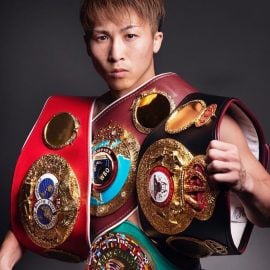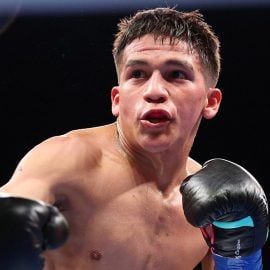Anthony Joshua’s confidence, ring identity might be tested by late-sub Robert Helenius

Before the failure of a drugs test had denied him his sought-after rematch with Dillian Whyte, Anthony Joshua had spoken like a fighter finally ready to rediscover his identity.
On Saturday at London’s O2 Arena, however, against Robert Helenius – the late replacement for Whyte – he will confront a significantly different test.
It is his confidence – and therefore fighting instincts – that have suffered most in the years since first his unexpected stoppage loss to Andy Ruiz, and more recently when the masterful Oleksandr Usyk inflicted on him successive defeats. As recently as April, throughout the course of his uninspiring points victory over Jermaine Franklin and on the occasion of his first fight under new trainer Derrick James, he had looked less comfortable than ever in a boxing ring.
Whyte was therefore recognized not only as a marketable opponent for a fight DAZN were determined would be pay-per-view, but through the history they share – a once bitter rivalry – and his aggression and willingness to confront Joshua, the nature of fighter potentially capable of helping Joshua answer the many questions whirling around in his too-often restless head.
Helenius, 39 and from Finland, was confirmed as Joshua’s opponent on Tuesday morning, 72 hours after Matchroom had announced that through Whyte returning adverse analytical findings in tests conducted by the Voluntary Anti-Doping Association, Whyte would not be fighting and Saturday’s date was at risk. In normal circumstances, Helenius is a competent late-notice replacement for a contest that, in a reflection of Joshua’s determination to fight, will no longer be pay-per-view. But circumstances surrounding Joshua haven’t been normal since Jarrell Miller – another fighter with the attributes to deliver what Joshua needed, though fortunately one not seriously considered – failed drugs tests in the build-up to his date with Joshua in June 2019, leading to the installation of Ruiz as his replacement on the evening Joshua was stopped.
Since then, Joshua – first by recruiting Angel Fernandez and Joby Clayton to assist the respected Rob McCracken – has tried and struggled to reinvent himself into a more cultured fighter than the more instinctive one who succeeded largely because of his explosive, heavy hands. He convincingly avenged his defeat by Ruiz, before often looking uncertain when stopping Kubrat Pulev, and then against Usyk beyond naive. That first defeat by Usyk led to McCracken being replaced by Robert Garcia, and a significantly improved performance when losing again in their rematch, and then the recruitment of the increasingly in-demand James.
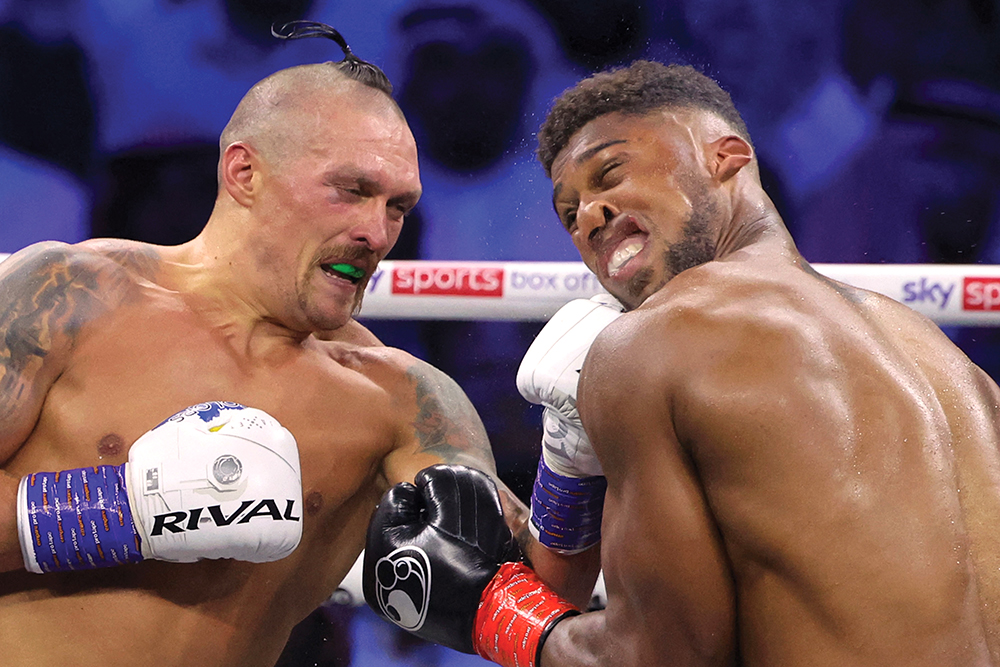
Joshua’s back-to-back losses to Usyk brought about two changes in trainers, from Robert McCracken to Robert Garcia to Derrick James. Photo by GIUSEPPE CACACE/AFP via Getty Images
Joshua’s performance against Franklin demonstrated that he may never again look as good as he did in the rematch with Usyk, and also the extent to which his improvement that night was the exception within a wider, negative trend. The doubts that dominate his psyche consistently undermined him against the under-appreciated Franklin, and after it sounded like James had made considerable progress in rebuilding that psyche, the uncertainty and very different pressures surrounding Saturday and Helenius will again put that progress to the test.
“I was [disappointed] actually because there was that feeling I should have knocked him out,” the 33-year-old Joshua said, reflecting on his previous fight with Franklin. “But he [Franklin] was a bit hard to hit; he could take a bit of a punch. One thing Derrick said to me which really helped me plant my feet in Texas was, ‘Everything I tell you, I don’t want you to do it exactly how I tell you – I want you to make it your own.’ When you’ve got a coach, you throw a jab and he’s like, ‘Nah, nah, nah. Dip your chin and turn it over.’ I’m thinking in the ring, ‘I’m not allowed to jab like that, I’ve got to turn over.’ By the time I’ve done that I’ve got hit by a six-punch combination. But now he’s like, ‘Stop trying to perfect everything I’m trying to teach you’.
“When I’m working with new trainers, you have a lot of respect for them. The thing with fighting, certain trainers try to indoctrinate too much and make it like you’ve got to keep your hand here, turn it over, and dip, there, there you go, and next thing you’re fighting out of your instinct where fighting’s a spiritual thing as well. Derrick’s helped me.”
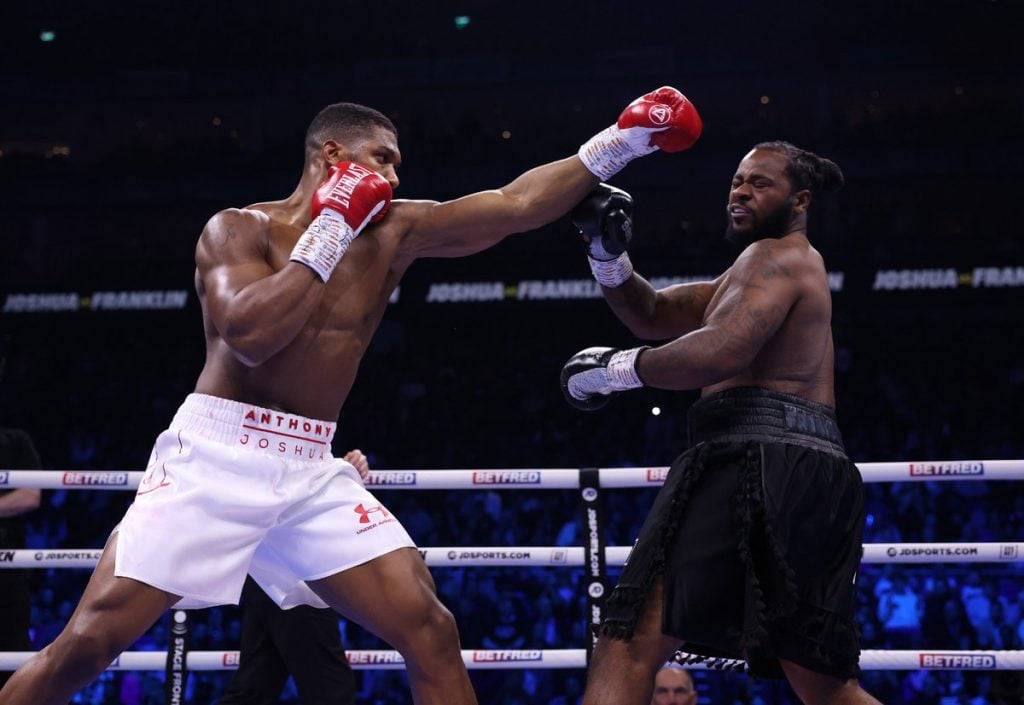
Joshua’s first bout with James in his corner was a 12-round UD against Franklin in April. Photo / @MatchroomBoxing
Whether that makes James a superior trainer to Garcia or McCracken – before Errol Spence’s convincing defeat by Terence Crawford it appeared he could do little wrong – is perhaps irrelevant. For a perfectionist – and an over-thinker – like Joshua, who learned to box at an older age than the most natural-born fighters like Crawford, Usyk and his divisional rival Tyson Fury, the fact that he identified a trait in his fighter that was inhibiting his progress had even contributed to that fighter speaking with renewed confidence. More relevant, as a consequence of the circumstances surrounding Whyte, is whether the uncertainty surrounding the identity of his opponent, and then awareness of how different Helenius – a former sparring partner – is to Whyte has affected the confidence that may still be fragile.
Joshua fought Carlos Takam in 2017, when the injured Pulev withdrew at relatively late notice, and despite far from excelling, as an undefeated fighter who had so recently retired the great Wladimir Klitschko he was unconcerned. When less than two years later Ruiz replaced Miller, it transformed his career. Helenius, who stopped the little-known Mika Mielonen in three rounds as recently as August 5, before the call to fight Joshua came, shouldn’t even pose the threat of the outclassed Takam, but his being almost decapitated by Deontay Wilder – potentially Joshua’s next opponent – in under a round last October perhaps presents an entirely different pressure.
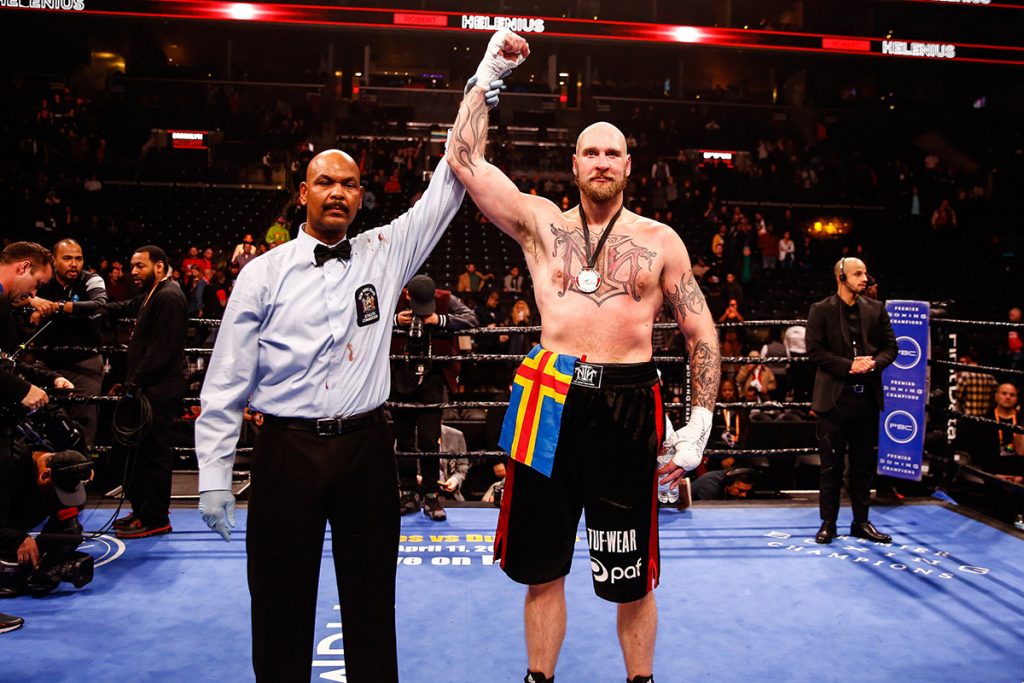
Helenius’ last significant victory was a rematch stoppage of Adam Kownacki but the veteran fought on Aug. 5 and says he’s ready for Joshua. Photo by Stephanie Trapp-Trappfotos-TGB Promotions
“This fight offer came to me after my fight at the weekend,” Helenius said at Wednesday’s final – and first – press conference. “I was going on vacation with my family but not anymore – here we are. We had a good camp behind us, and we feel ready. I am ready to fight, otherwise I wouldn’t be here.”
The undercard features four fighters who were linked to replacing Whyte against Joshua until Helenius was confirmed. Two of those, Derek Chisora and Gerald Washington, fight each other despite the reality that neither should again be going anywhere near a boxing ring. Their fight – which not even either fighter had demanded – was announced only two days before the development surrounding Whyte, making it particularly strange. The fight between the other two, Filip Hrgovic and Demsey McKean, has considerably greater appeal, which is more that can be said for the remainder of the undercard – one that had been intended to support a pay-per-view.
SUBSCRIBE NOW (CLICK HERE - JUST $1.99 PER MONTH) TO READ THE LATEST ISSUE







